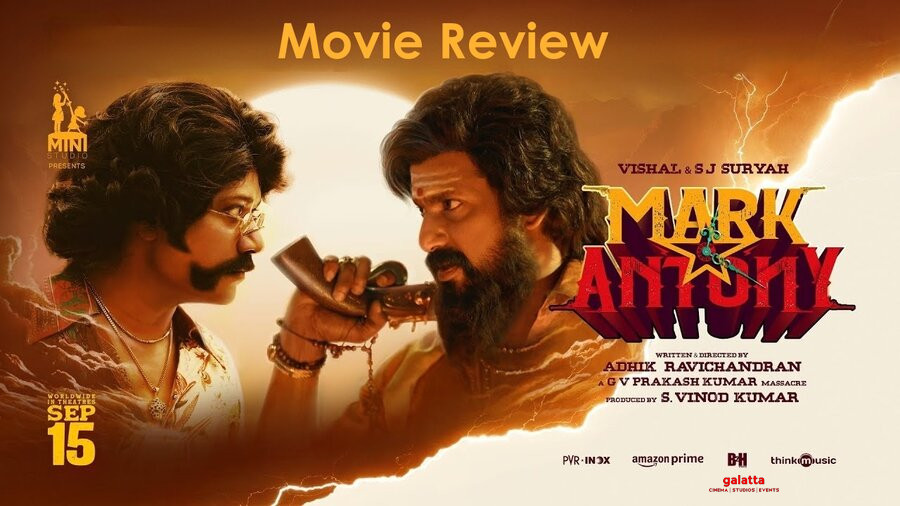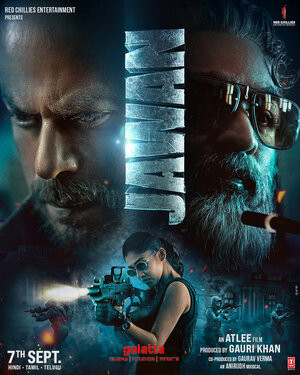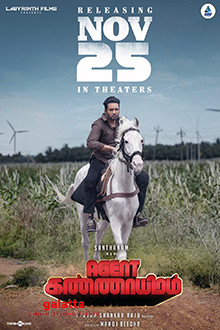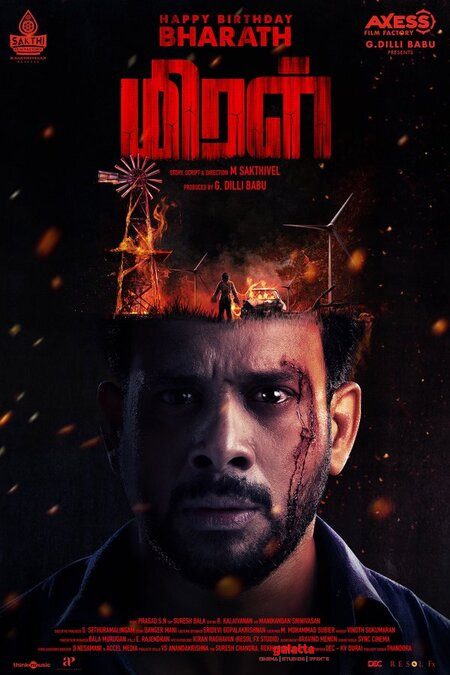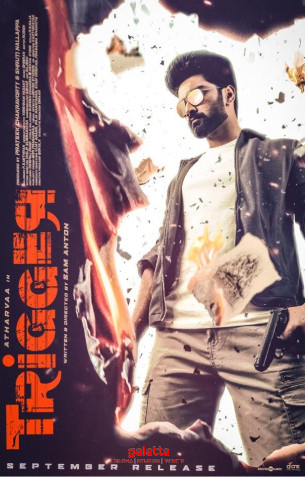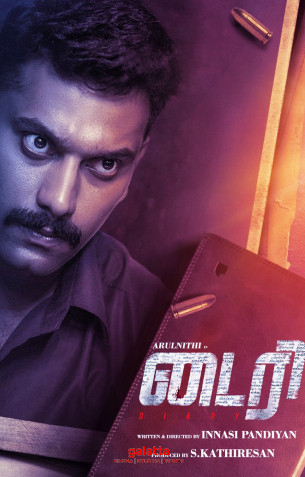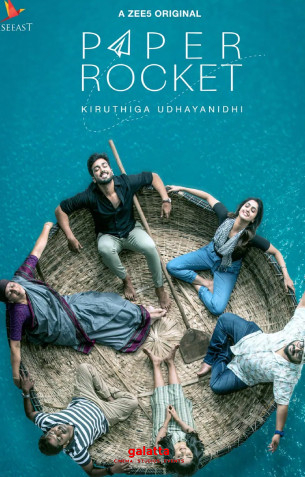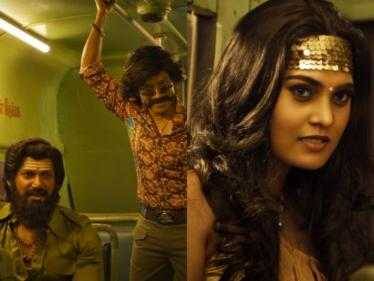Mark Antony Movie Cast & Crew
After Venkat Prabhu, Adhik Ravichandran sets out to prove that it is possible to make a well-thought-out, well-written, and well-made entertainer within the boundaries of commercial Tamil cinema. Like Maanaadu, Mark Antony takes a sci-fi premise and does joyously inventive things with it. The difference is in the tone. Maanaadu was more classical, while Mark Antony is gloriously over-the-top – it's like a knowingly cheesy revenge-themed Spaghetti Western. (The score by GV Prakash Kumar is appropriately filled with trumpets and guitar twangs.) In 1975, a science geek played by Selvaraghavan creates a time-travel phone, which helps you make calls to people in the past. And through those calls, if you provide information in order to change the course of events, the present changes, too. This much we know. But what Adhik does with his writers is brilliant. He slaps this crux onto the masala movie. And this is where the film takes a life of its own.
Mark Antony plays with one of the most popular masala tropes: the double role. Usually, the hero plays two characters – usually, brothers or father-son. Here, the villain does the same. So we get two sets of lookalikes. The story is serious: the hero has to avenge his father's death (but with a twist using the time-travel concept). And there are serious scenes set in the past, like the one where a boy and his gun-wielding mother chase off a gangster and his goons. There are seriously mythic bits like a line hinting at rebirth, and a scene with a man being possessed by a god, which leads to a big action item. There is a superb stretch involving a missing finger, which gets an equally superb echo. There is a wonderfully "logical" reason for an older man not eating until the younger man he considers his son has the first morsel. (And this has a connection with the older man's wife, too.). All of this points to the spirit of the masala movie being taken seriously.
But the treatment is wonderfully lighthearted. Despite the basic seriousness of the plot, Mark Antony is not afraid to be goofy – this mix of flavours works amazingly. We see people levitating in a certain situation. We see a man who keeps breaking his father's statue. We see a gangster who does not do any "bad things", i.e., no women or drugs or guns – and we are left to wonder what kind of rowdy he actually is. We see hilariously huge guns. Wait till you see the name of one of them! Vishal is the nominal hero, but the real stars are Adhik's tongue-in-cheek direction and SJ Suryah's outrageously hammy-funny performance. The actor is credited as "nadippu arakkan" in the credits, and this is no exaggeration. He channels Sivaji Ganesan and MR Radha and about a dozen other stylised performers and aces every single line reading. I practically stood up and clapped during a monologue where his character reels off similar-sounding names of films starring MGR and Sivaji Ganesan.
The other layer in Mark Antony is the bed of pop culture it rests on. The title, of course, is a character from Baasha. We get nods to Ajith, Vijay, the gaudy AVM sets from the 1980s, and Ilayaraja songs from Thoongathey Thambi Thoongathey and Chittukuruvi. An incredibly imaginative scene sets Silk Smitha in a bus while the SJ Suryah character has a conversation with his disco-dancing conscience. I suspect this will be a film enjoyed by many, but the few that don't buy can still keep themselves busy by, say, noticing lines from a song in Kamal Haasan's first film uttered in the form of dialogue. Cinematographer Abinandhan Ramanujam bathes the frames in exaggerated neon colours, and in terms of composition, the shots are vibrant and alive and also a bit nuts. The costume designer adds to the vibe with an in-sync wardrobe. One of the characters Vishal plays is a fan of cartoons, and he wears a Tom & Jerry T-shirt. And none of this is rubbed in your face.
The minuses? I think I am beginning to tire of the one-note comedy by Redin Kingsley. And I wish Vishal had pushed himself more. He is not bad as the gangster, but as the wimpy son, he is not as effective as he should be. The film is a little too dialogue-heavy, but this lack of elegance is easily forgivable given how much information needs to be made clear for a larger audience. The effeminate Y Gee Mahendran character looks like he had more to do in the screenplay and was edited off due to length reasons. The heroine (Ritu Varma) is not written with the same level of interest as the men. In a serious genre film, a duet would have been a pain in the butt – but in this universe, I wished they had had a romance track and a Thamizh Padam-ish duet reminiscent of an earlier era.
But the apparent joy this team had while writing and making this film is contagious, and Mark Antony moves fast enough that you don’t have much time to dwell on what’s not working. Adhik's storytelling (and Vijay Velukutty's editing) is quick, no doubt – it's certainly attuned to today's attention span used to shorts and reels. But it's not that "speed of machine-gun bullets" kind of cutting, and the narrative is always coherent. You always get what is going on. At a time when the only thing that seems to be working big-time at the box office is the “mass” flavour, films like Maanaadu and Mark Antony restore your faith in the masala movie – and they assure us that this very Indian “genre”, if you will, can be refreshed and rebooted with Western concepts like time-loops and time travel. Mark Antony feels both modern and old-fashioned (in a good way). I left the theatre with admiration and happiness.
